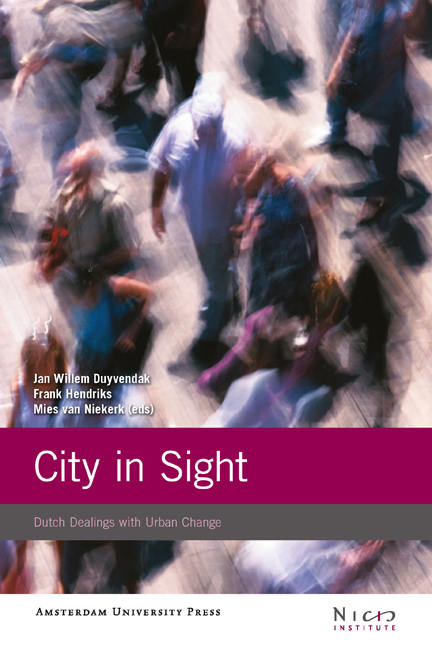Book contents
- Frontmatter
- Contents
- Acknowledgements
- Cities in Sight, Inside Cities: An Introduction 9
- Part I Urban Transformations and Local Settings
- Part II Urban Citizenship and Civic Life
- Part III Urban Governance and Professional Politics
- The Dutch Orange and the Big Apple: A Comparative Commentary
- References
- Notes on Contributors
- Index
2 - Unraveling Neighborhood Effects: Evidence from Two European Welfare States
Published online by Cambridge University Press: 19 January 2021
- Frontmatter
- Contents
- Acknowledgements
- Cities in Sight, Inside Cities: An Introduction 9
- Part I Urban Transformations and Local Settings
- Part II Urban Citizenship and Civic Life
- Part III Urban Governance and Professional Politics
- The Dutch Orange and the Big Apple: A Comparative Commentary
- References
- Notes on Contributors
- Index
Summary
Introduction
In the last decades social mixing programs have become a key ingredient of urban policy throughout Europe. There are important political motives for paying attention to ‘the neighborhood’: neighborhoods of poverty in cities in Western Europe and North America have been the stage of riots and unrest for more than three decades now and recent examples in Leeds/Bradford and the French urban banlieues are fresh in many people's memories. Consequently, many politicians in France, the Netherlands, Germany, and the UK have become convinced that rigorous transformations of the so-called ‘problematic neighborhoods’ is unavoidable. The aim of the resulting area-based programs is not only to address the day-to-day problems of neighborhood disorder and crime in areas of concentrated poverty (Uitermark & Duyvendak 2005a) but also to address the limited social mobility of residents (Atkinson & Kintrea 2001). Many researchers, however, have expressed doubts whether area-based programs of social mixing can actually provide a solution to the problems of social exclusion and anti-social behavior, such as dropping out of school, youth delinquency and deviant work ethics, in disadvantaged urban areas (for a discussion on this point, see Andersson & Musterd 2005). This depends on whether the problems that manifest themselves at the neighborhood level also originate there, a question which is central to the study of neighborhood effects.
Until recently, empirical evidence from the European context for negative neighborhood effects with respect to aspects of social mobility, such as labor market participation and level of income, was scarce. The general assumption was that neighborhood effects are smaller in the European than the American context due to the substantial differences in welfare state interventions aimed at reducing inequalities between people and between neighborhoods (Musterd et al. 2003). However, several recent large-scale quantitative studies from the Dutch and the Swedish context show that even in comprehensive welfare states the neighborhood context plays a role in shaping the socio-economic opportunities and behavior of those who are part of the neighborhood. At the same time, neighborhood does not affect everyone in the same way and there are few European studies that can help explain the way in which living in a low-income neighborhood context impacts residents’ socio-economic opportunities.
- Type
- Chapter
- Information
- City in SightDutch Dealings with Urban Change, pp. 41 - 60Publisher: Amsterdam University PressPrint publication year: 2009
- 1
- Cited by



